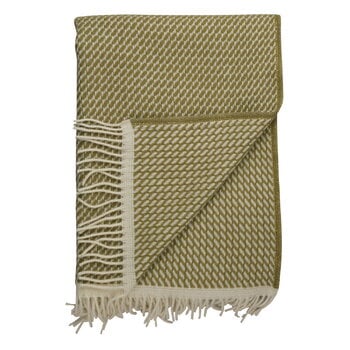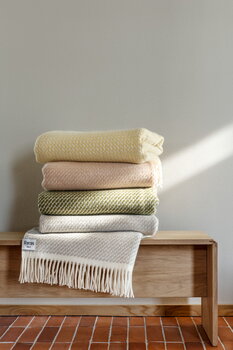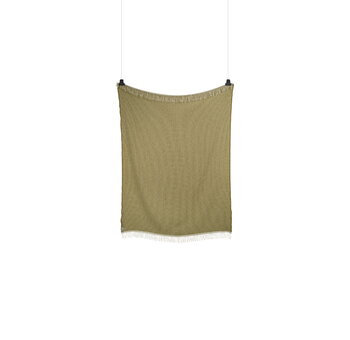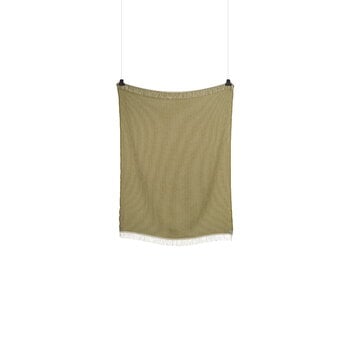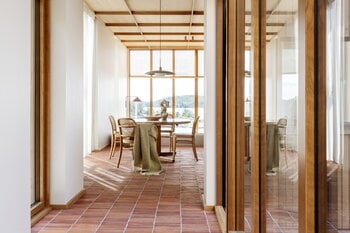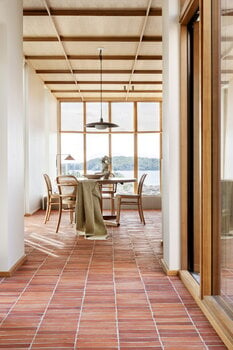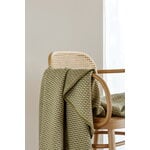Røros Tweed's soft Mello throw delightfully combines traditional and modern design. Designed by Skogstad & Wærnes, the wool throw's elegant look, relaxed fringes and monochrome shade will suit various spaces and different uses, making the Mello blanket a beautiful decorative piece on the sofa or the armchair or warming you up during a nap.
High-quality home textiles by the Norwegian Røros Tweed are made from 100% Norwegian lambswool, shorn from sheep living free in the mountains. The manufacturing process is also kept fully in Norway to maintain high standards, which have been essential to the company's continued success since the 1940s.
